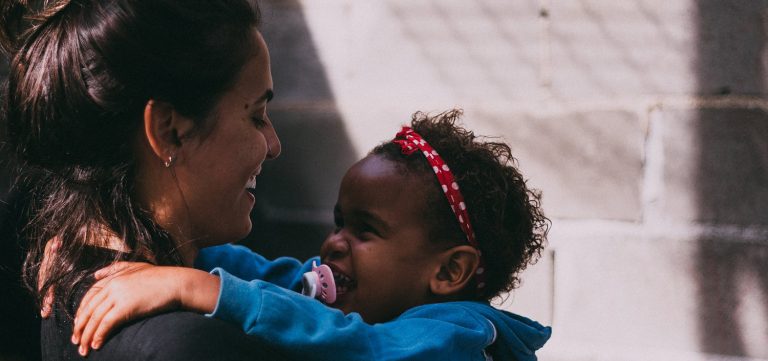“10 tips for dealing with common challenges of attending childcare” is a collaborative post.
Ask any parent how they are feeling on the day their little one attends childcare for the first time and the chances are they will say it is a moment filled with pride, sadness and emotion.
Yep. We’ve all been there!
But while this day is a significant milestone in their life (and yours as a parent), it is also one that can have its fair share of challenges.
For many children, going to kindy is the first time they will have been away from one or both of their parents for more than a couple of hours. So, it is understandable they might be nervous or apprehensive about the prospect.
Clearly, you will want to do everything you can to allay their fears and ensure the change is as smooth as possible. But how do you go about doing that?
Here are ten tips for dealing with some of the common challenges that can arise from your child attending daycare. By implementing them, you’ll give your pride and joy the best chance to embrace the experience with open arms.
1. Talk it up
One of the best ways to manage the transition of your child going to kindergarten is to talk it up and it is never too early to start doing this. Even if they are a baby, you should reference every now and then how exciting it will be for them to attend childcare. Kids are always taking stuff in!
Right from a young age you want to develop positive associations with going to kindy. So, avoid saying things like ‘mummy will miss you!’ or ‘what is daddy going to do now when you are not here’, as this can develop negative vibes about going there.
Instead, talk about all the exciting things they can do while they are there and how many new friends they are likely to make. In the weeks and days before their initial start, it is also worth verbalising what a wonderful experience you had during your time in childcare. (If you have any photos to demonstrate this then all the better).
2. Address separation anxiety
As mentioned, for many children, going to daycare is the first time in their life they would have been away from their parents, with strangers, for a prolonged period. Understandably, this could result in separation anxiety.
A good way to manage this is to gradually spend time away from them in the period leading up to their first day. This could involve hiring babysitters or asking friends or relatives to look after your child while you are not with them. It is a good idea to start with a relatively short length of time, perhaps an hour, and gradually extend it to be at least the same period that they will be at childcare for.
Whenever you leave your child in this lead up time frame, make sure you give them a hug or a special handshake and let them know when you will pick them up. Doing this will give them the trust and peace of mind that you will come back, which in turn, will enable them to deal with your absence more calmly.
3. Encourage your child to be independent
Another way to manage separation anxiety before they attend kindly is to encourage your child to be independent. A good way to do this is to allow them to play safely for a short period in the garden or another room.
Alternatively, give them increasing responsibilities that are appropriate for their age, including dressing themselves, setting the dinner table or putting away their toys. Doing these ‘big boy’ or ‘big girl’ things should improve their self-confidence and make them feel more ready to go to childcare.
4. Give them comfort objects
We all like our comfort zone or items and children are no different. Therefore, it is a good idea to let your child choose one or two things to take to daycare that will provide them with a sense of familiarity and security in the new environment.
This might include a stuffed animal or their favourite blanket or pillow for nap time. Just make sure the childcare facility allows them onsite and that they are clearly labelled as belonging to your child. (Trust us, you won’t want to lose them!)
If your child intends to bring a stuffed toy with them and it has a name, you can use that to your advantage when talking up the act of going to kindy and managing separation anxiety, by saying that the toy is also excited about going to childcare and will be there with your child. (Pro Tip. If that stuffed toy is an animal e.g. a bear or cow, tell your child they are going to ‘bear-care’ or ‘cow-kindy’ etc).
5. Incentivise them to go there
Another excellent way to make children excited about going to daycare is to incentivise them to do so. We are not talking about promising trips to Disneyland or Harry Potter World, but rather giving them little wins.
This could take the form of saying you’ll cook their favourite dinner, they can wear their favourite outfit you made them, or you will play a game they love with them if they enjoy their day at childcare. Ultimately, this form of encouragement can make a big difference in their attitude towards attending childcare.
6. Love the childcare centre
How can you expect your child to love the childcare centre if you don’t? For this reason, you should be lavish in your praise of it.
Telling your child exactly what you love about the childcare centre is likely to influence their opinions of it in a positive way. So, whether it is the facilities they offer, the fun activities they do or even just the toys or books they have available, be sure to let your little one know what they have to look forward to.
7. Love the childcare staff
As well as the childcare centre it is important to love the staff as well as this should allay some of the fears your child might have about being left with strangers.
Extolling their virtues of the kind staff is a terrific way to instil confidence within your children that the people they will be interacting with are nice, kind and fun.
It is important to remember that children learn from seeing. So make sure they witness you partaking in friendly and engaging conversations and don’t just hear you say how nice the staff are.
8. Implement a consistent routine
Children love consistent routines. So, to help them adjust to their time in childcare it is worth establishing a daily routine on days they are at home that mirrors the schedule they follow at the daycare facility.
This can include meals, nap schedules and activities that mirror what they would experience in kindy. For instance, if they always have story time first thing in the morning or lunch at 12.30pm then replicate that.
Overall, a familiar routine creates a sense of predictability and stability, which goes a long way towards helping children feel more secure and therefore enjoy the childcare environment to a much greater degree.
9. Volunteer
Just because your child is kind doesn’t mean they have to miss seeing you. Many childcare centres including Raising Stars welcome input from parents for certain activities including reading stories, assisting with various play activities or helping to supervise kids on trips and excursions.
If you have some time available, especially if you are not working, why not offer your services as a volunteer for a couple of hours? Both your child and the childcare facility will be glad you did.
10. Make new friends
A great way to encourage your offspring to go to childcare is to help them make friends. After all, if they find someone their age they enjoy playing with, it will make them more likely to want to go.
This process of making new friends should also apply to you as a parent. If you can find another mother or father you get on with, you can help develop your child’s friendships with their children by arranging playdates outside of their time at daycare.
These bonds can form very quickly and the quicker your children and you form them the more likely they are to want to go to kindy to see their friend(s).
Final thoughts on dealing with common challenges of attending childcare
Childcare is a significant part of a child’s early years, offering them opportunities for learning, socialising and generally growing as people.
While many parents and children face challenges in regard to attending childcare, there are plenty of things you can do to ensure the transition from being together 24/7 to your little one’s going to daycare is achieved as smoothly as possible.
Ultimately, your best course of action is to create a positive and supportive environment that sets your child up to enjoy their time at kindy. If you implement the ten tips outlined above, you’ll give them every chance of being able to do so.






